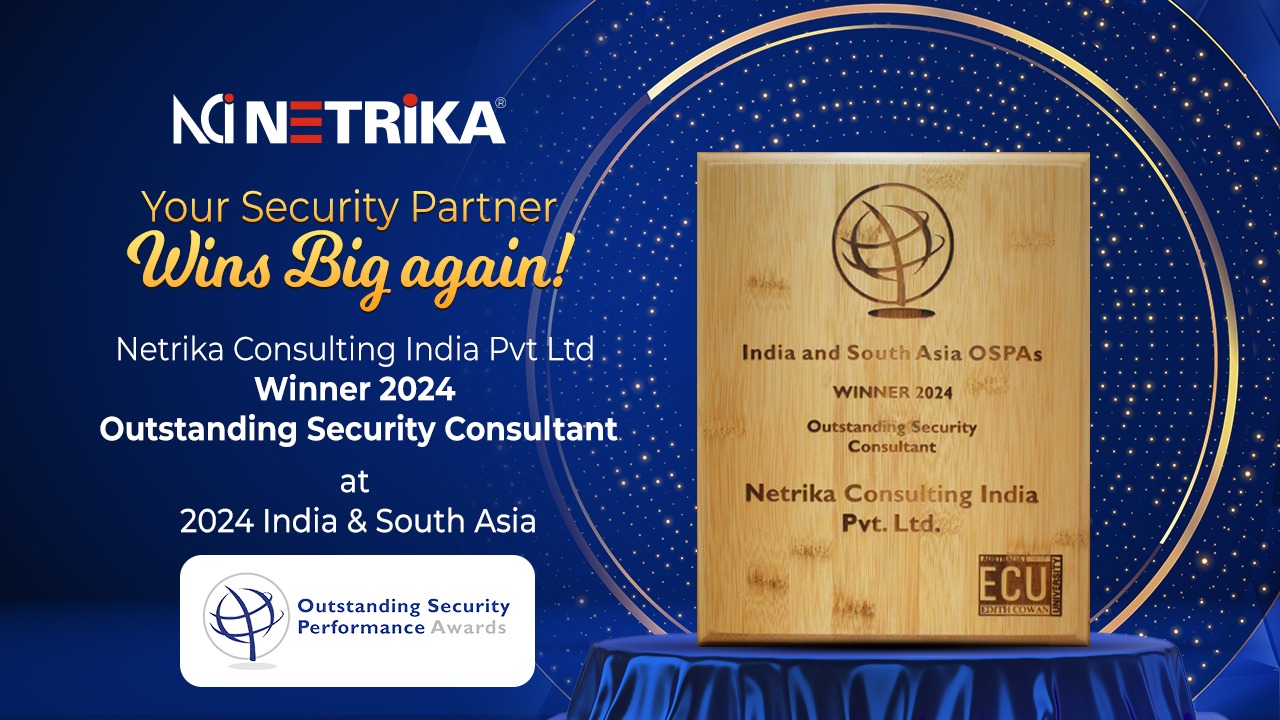News & Events
Certificate In Corporate Security Management Studies (CCSMS)
- November 1, 2023
- Posted by: marketing@netrika.com
- Category: Blogs

Certificate in Corporate Security Management Studies
Corporate security management course certifications are essential to every small, medium or large enterprise concerned with risk, disaster, business resilience, and business espionage. The certification is intended for risk management professionals who want to further their careers while protecting an organisation’s tangible and intangible assets.
The corporate security courses online assess a professional’s professional competencies in their systematic approach to identifying, analysing, planning, administering, quantifying, and monitoring the corporate security function. The certification enables candidates to comprehend core security management principles and their interconnected applications and roles within a corporate culture.
To help you acquire the necessary skills and update your existing ones, a Certificate in Corporate Security Management Studies (CCSMS) from ASIRS proves to be the best credential. It distinguishes itself as the appropriate training for security management professionals by offering various online courses that will teach you all you need to know to boost your professional exposure.
Basic Requirements to obtain the corporate security management course credentials
- 21 years old and above
- Diploma Holders
- An industry or government recognised professional certificate
- At least 1 year of security management industry related working experience
- Secondary or High School education or equivalent with English as the language subject
CCSMS considers the significance of strategically presenting the Corporate Security function as an integral element of the organisation in order to foster collaborative partnerships with the organisation’s other business units. The modules of CCSMS course prepare professionals to gradually develop the corporate security function to leave a positive imprint and impact on the organisation by actively utilising corporate competitive intelligence, countering corporate and industrial espionage frameworks, and applying the concept of risk management to demonstrate the return on investment in effective security budget planning and execution.
Certificate in Corporate Security Management
Through this security management course in India, professionals will learn how to use fundamental security management principles and their interconnected applications and functions without inhibiting or contradicting the Organization’s corporate culture. The CCSMS certification seeks to teach candidates about the influence of risk and threat on day-to-day company operations, the two primary categories of risk classifications and the many risk response options such as Risk Transfer, Risk Acceptance, Risk Avoidance, and Risk Mitigation.
Candidates will also discover the meaning and implications of risk terminologies such as risk aversion, risk proneness, risk tolerance, and risk threshold. It also introduces candidates to the concept of Business Continuity Management (BCM) and the role BCM plays in Emergency Planning, Response, and Safeguarding an Organization’s resilience and survival.
Professional Skills required for obtaining Corporate Security Management course certification
➢ Problem solving ability: Corporate security managers must be competent in solving difficulties. They employ these abilities to identify potential dangers, create risk-mitigation techniques, and evaluate the effectiveness of their strategies. They also use problem-solving skills to discover and apprehend perpetrators, conduct investigations, and devise security measures.
➢ Leadership skills: As a security manager with corporate security courses certification credentials, you may be in control of a security team. Leadership skills can help you motivate your team and assist them in their professional development. You can use your leadership skills to help your team design security policies, provide training, and devise ways to safeguard your company’s assets.
➢ Analytical abilities: Analytical skills enable professionals to gather and draw conclusions from information. The corporate security management course in India manager credential prepares you to become in charge of investigating security breaches, estimating the risks of various situations, or gathering data to aid in decision-making. Your analytical skills can help you make the most of the facts at your disposal and generate conclusions, allowing you to make informed decisions.
➢ Data Analytics: Completing detailed data analysis using the information accessible to you in the security industry will assist in protecting a firm from a number of threats that may harm personnel, tarnish brand reputations, or even result in financial loss. Security data analysis has a strong emphasis on threat analysis. Its purpose is to reduce the likelihood of security breaches and neutralise threats before they are exploited. You must be able to work with large datasets, query data, and create user-friendly dashboards. This includes rigorous data analysis and drawing meaningful inferences from the data based on your experience, aiding your firm in making data-driven decisions.
➢ Communication Skills: Like customer service, communication is a universal skill necessary in practically every industry. A security professional’s communication skills are necessary in various scenarios, such as introducing a new security product, troubleshooting issues, or attempting to educate other employees about appropriate cyber-hygiene.
How Netrika can help professionals obtain their certification in security management course in India
Assisting corporate security management aspirants on their journey, Netrika, a well-known and reputable supplier of career-oriented training, provides insight into the numerous aspects that drive Global Corporate Security Management Trends. Netrika’s corporate security management course (CCSMS) reveals the enhanced expertise of the Corporate Security portfolio. The corporate security certification combines the appropriate combination of knowledge, skills, risk discoveries, and best practices to enable a specialist to mitigate the risk landscape in enterprises.

